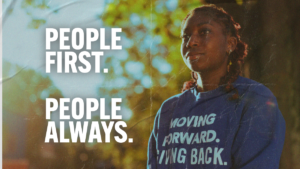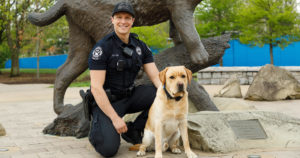The University of Kentucky College of Social Work (CoSW), in collaboration with the Department for Community Based Services (DCBS), is pleased to announce the launch of the Adult Protective Services Self-Neglect Adaptive Response Initiative (ARI). ARI is an integrative, transdisciplinary pilot project aimed at responding to self-neglect referrals quickly and providing a variety of support services. The comprehensive purpose of ARI is to improve the overall well-being of those referred for possible self-neglect.
Self-neglect involves older adults or adults with disabilities who cannot meet their own essential physical, psychological, or social needs, which threatens their health, safety and well-being. This includes failure to provide adequate food, clothing, shelter, and health care for one’s own needs.
The ARI initiative will begin its pilot in Fayette County, also known as the Southern Bluegrass Service Region, and will aim to address three interconnected goals:
- Foster new and innovative APS self-neglect response practices and protocols consistent with contemporary needs and best practices.
- Support APS workers in ensuring the safety and well-being of vulnerable adults, while protecting their right to self-determination by utilizing the above innovative practices and protocols.
- Cultivate a dynamic service network and communication/information sharing infrastructure necessary for meeting the needs of those referred for APS services.
ARI staff will include a Project Manager, along with an APS Self-Neglect Assessor (SNA) who will be a full-time employee, housed in CoSW.
In addition, ARI will utilize a community-based Interdisciplinary Team and a small Steering Committee. The Interdisciplinary Team will be comprised of partner response agencies that have expertise in serving individuals referred for self-neglect, while the Steering Committee will provide insight about program policies, planning, and training.
Ultimately ARI seeks to meaningfully engage and build trust with individuals who are at risk of self-neglect, then offer them potentially life-changing assistance as quickly as possible. This wholistic approach to care will help preserve the sense of independence and self-determination that is vitally important to people, while also providing the tools necessary to help them live their healthiest lives.






